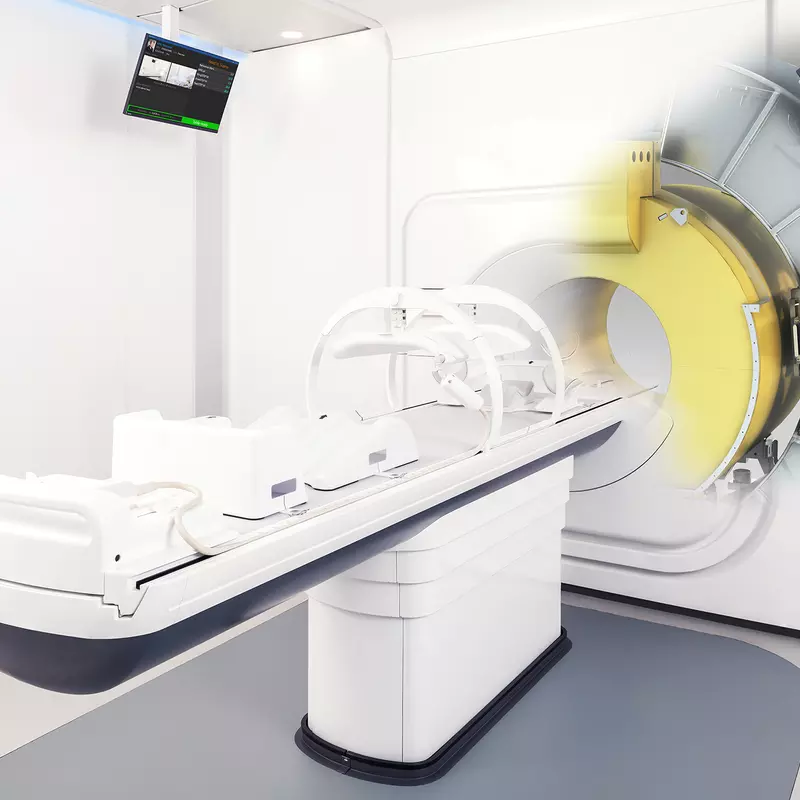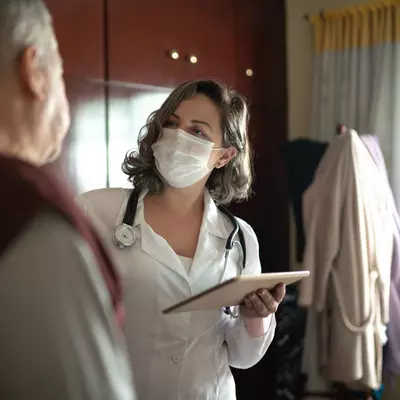
Comprehensive Care Designed With You in Mind

A colonoscopy can help detect colon cancer in its early stages when it’s easier to treat with better outcomes. Discover when and why you need this important screening.

Our team includes specialists with extensive experience and knowledge in detecting, diagnosing and treating colon cancer, and we put that knowledge to work for you.
Every day, we work with patients from across the Kansas City region, helping them understand their colon cancer risk, offering second opinions and creating proven plans tailored to their specific needs and goals.

Colon cancer doesn’t just impact your body. It impacts your mind and spirit, too. That’s why we’ve developed comprehensive support and resources to help you feel your best. Discover how support groups, holistic care and more can help strengthen your body, ease your mind and lift your spirits.
Empowering You With Answers Helping You Understand Digestive Wellness
Colon cancer (also called colorectal cancer or bowel cancer) is the abnormal development of cells in the colon or rectum. Colon cancer occurs in men and women at any age, but 90% of new cases occur in people over 50. Here’s what you need to know.
- Preventing Colon Cancer
-
You can take some steps to reduce your risk of developing colon cancer. Talk to your doctor about how changes to your lifestyle can help you stay healthy, including:
- Cutting back on alcohol
- Getting screened for colon cancer
- Quitting smoking
- Reducing red meat intake
- Taking supplements (calcium, vitamin D or folate)
- Colon Cancer Causes and Risk Factors
-
Cancer researchers don’t know the exact causes of colon cancer, but they’ve discovered some factors that may lead to its development, including acquired or inherited gene mutations.
Several factors might increase the risk of getting colon cancer, including:
- Being overweight or obese
- Heavy alcohol use
- Physical inactivity
- Smoking
- Unhealthy diet
Risk factors that you can’t change include:
- Being older
- Family history of colon cancer
- Personal history of colorectal polyps or cancer
- Personal history of inflammatory bowel disease
- Signs and Symptoms of Colon Cancer
-
When symptoms appear, they will vary due to the size and location of the cancer. Signs and symptoms of colon cancer include:
- Abdominal discomfort (bloating or gas)
- Bloody stools
- Changes to bowel movements (lasting longer than four weeks)
- Rectal bleeding
- Unexplained weight loss
- Weakness and fatigue
- Talking to Your Doctor About Colon Cancer
-
Knowledge is power, especially when it comes to preventing, detecting and treating colon cancer. Ask your doctor any questions you have about symptoms, diagnosis or screening. Asking questions enhances your relationship with your provider.
Questions may include prevention- and diagnosis-specific topics like:
- What is my risk for colon cancer?
- How often should I have a colorectal cancer screening?
- What type of cancer do I have?
- What are my treatment choices?
- How much experience do you have treating this type of cancer?
- Screening Tests for Colon Cancer
-
The Centers for Disease Control and Prevention (CDC) recommends that men and women ages 50 to 75 be screened regularly for colon cancer. These tests include:
Colonoscopy
If you’re looking up “colonoscopy doctor near me,” we can connect you with an expert who can help. A colonoscopy may follow up a screening test if anything unusual is found to search for polyps. Your gastroenterologist may also remove most polyps and some cancers during a colonoscopy. People are usually screened every ten years.Fecal Occult Blood Test
The fecal occult blood test (FOBT) is used to detect blood in the stool. People receive a test kit for obtaining a small sample of stool at home and return the kit to be tested. You may get this screening yearly.Flexible Sigmoidoscopy
A health care professional inserts a flexible, lighted tube into your rectum to check for polyps or cancer. This screening usually happens every three to five years.Other tests for colorectal cancer include double-contrast barium enema, virtual colonoscopy and a stool DNA test.
Your doctor will help you understand the screening that’s best for you.
- Stages of Colon Cancer
-
Staging can help your doctor understand your diagnosis and make important decisions about which treatment plan may be best for you.
It also helps you to know which stage of cancer you have, so you can feel confident in the treatment you receive. Your cancer care team will identify and explain the stages of cancer and your treatment options.
- Colon Cancer Treatment Options
-
Talk to your doctor about which treatment options work best for your colon cancer diagnosis.
Chemotherapy
Chemotherapy is the use of medication to stop the cancer cells' ability to grow and divide. Medical oncologists, doctors who specialize in treating cancer with medication, usually administer chemotherapy.Radiation Therapy
Radiation therapy uses high-energy X-rays to destroy cancer cells.Surgery
Oncology surgery is the most common treatment for colon cancer. Part of the healthy colon or rectum and nearby lymph nodes will also be removed.Targeted Therapy
This treatment targets the cancer's specific genes, proteins or the tissue that contributes to cancer growth and survival. It helps block the spread of cancer cells while limiting damage to healthy cells. - Colon Cancer Outcomes
-
Looking up prognosis statistics on the internet can be a little frightening. It’s important to keep in mind that these numbers only tell part of the story. And, remember, no matter your stage of cancer, we’ll always be by your side to get you back to whole health.
The American Cancer Society tracks five-year relative survival rates for colon cancer in America. However, they don’t do so based on stages (e.g., stage I or stage II).
Instead, they base it on three categories of how far the cancer has spread: localized (cancer is just inside the colon), regional (cancer has spread just outside the colon) or distant (cancer has spread to distant parts of the body).
Remember, talk to your doctor about these numbers. An honest conversation will help you feel comfortable and confident in your health.
Colon Cancer Care Supporting Your Every Step
Your search for the best doctor for colonoscopy near you can end here, because we don’t just treat your colon cancer. We want to help heal your body, mind and spirit in as many ways as possible.
Cancer Rehabilitation
Our program offers one-on-one treatment with a licensed physical therapist specializing in oncology rehabilitation.
Care Navigator
Our care navigators are by your side throughout your journey, answering questions and easing your mind.
Survivorship
You can overcome cancer. We offer hope as well as healing from treatment to survivorship.

Your Kansas City Colon Cancer Care Team
You’ve got this, because we’ve got you. Connect with one of our experienced and compassionate oncology specialists and get the answers you want and need.

Cancer Treatment Technology To Help You Heal
AdventHealth Cancer Institute Shawnee Mission offers the latest cancer-fighting technology, the Elekta Unity MR-Linac system. We're the first and only health care center in Kansas City to offer this new technology. Discover how MRI-guided radiation therapy means fewer treatments and side effects.
Colon Cancer News and Info







